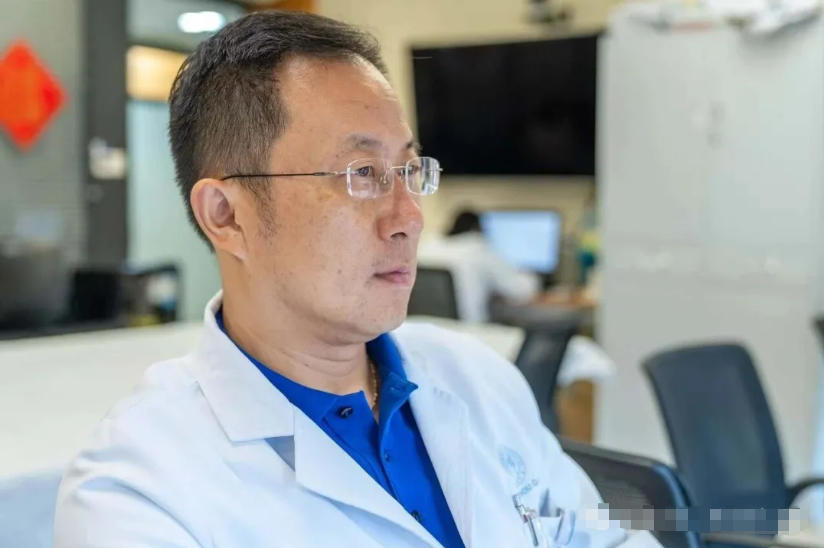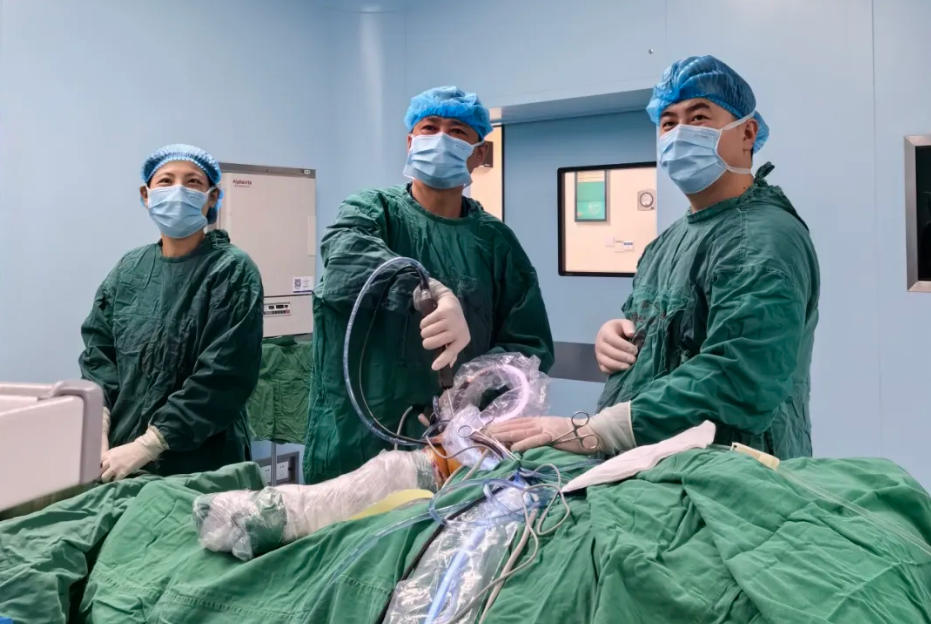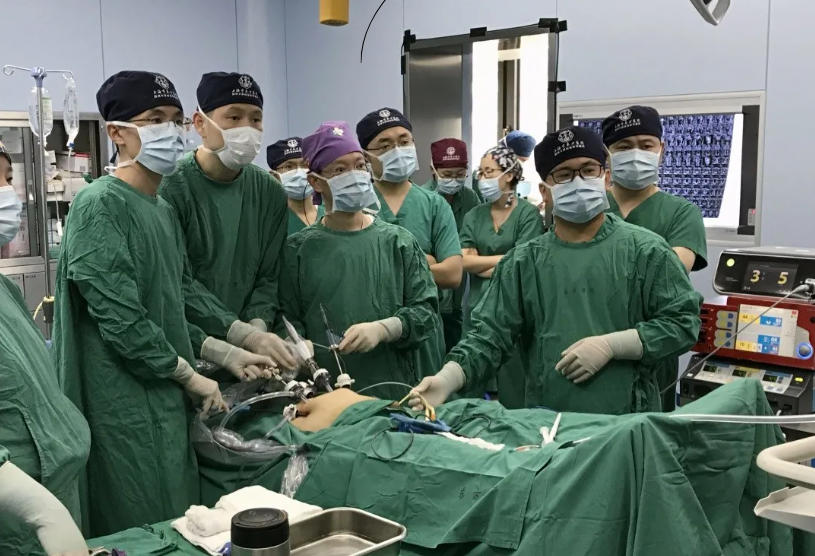更新时间:2025-08-31点击:5495

Professor of Anesthesiology Former Director of Anesthesiology, Renji Hospital
Introduction
Surgical anesthesia occupies a unique space in public consciousness—both familiar and mysterious. For every surgical patient, the anesthesiologist is the first face seen before drifting off to sleep and the first upon waking, yet their critical role in the operating room often remains misunderstood.
In truth, anesthesiologists are the unseen guardians of life during surgery, the essential foundation upon which successful operations depend. Regardless of a procedure’s duration, they vigilantly monitor vital signs, respond to emergencies, create optimal conditions for surgeons, and safeguard the patient’s life throughout. The entire process is often likened to “a routine flight”: induction and intubation are takeoff, intraoperative monitoring is the flight itself, and postoperative recovery is landing. Anesthesiologists must navigate this journey with unwavering precision, ensuring the patient “takes off smoothly, flies steadily, and lands safely.”
Remarkably, the surgical use of anesthesia and the founding of Shanghai’s Renji Hospital both occurred in 1844—a pivotal year catalyzed by Michael Faraday’s 1818 discovery of ether, which marked the dawn of modern anesthesiology. Subsequent innovations in inhalation and intravenous anesthetics expanded the pharmacological toolkit for general anesthesia, while the advent of muscle relaxants further enhanced its efficacy. As Yu Weifeng explains with encyclopedic clarity, “Initially, anesthesia simply enabled surgery—using drugs to render patients temporarily insensate. Today, our scope has evolved dramatically. We now oversee the patient’s entire perioperative journey, extending to long-term quality of life and holistic well-being.”
The Path to Medicine
Why aspire to become a military doctor? For Yu Weifeng, this was a deeply personal story, shaped by the turbulent fate of his generation.
“When the college entrance exam was reinstated after the Cultural Revolution, I chose the Second Military Medical University (now Naval Medical University) without hesitation. It fulfilled both my dream of serving in the military and pursuing higher education. I still recall that summer afternoon in 1980, holding my acceptance letter. I went straight to the village secretary to finalize paperwork, then bid farewell to my old life.”
This turning point transformed not just his family’s destiny but symbolized a new era for China. Born in the 1960s, Yu and his peers became pioneers in Chinese anesthesiology. Though he entered university with diverse aspirations, an unseen force seemed to guide him toward anesthesia.
His first medical lecture was delivered by Professor Wu Mengchao, revered as the “father of Chinese hepatobiliary surgery.” Wu’s accessible teaching, rigorous scholarship, and selfless dedication profoundly inspired Yu, forging an unbreakable bond between mentor and student.
Upon graduating, Yu ranked 13th among his peers at the Second Military Medical University, earning a coveted position to remain at the institution—a supreme honor in that era. Yet Yu yearned to become a surgeon like Wu, wielding practical skills. When departmental assignments were announced, however, he was placed in anesthesiology.
He remembers the day vividly. Professor Wang Jingyang, head of anesthesiology (a protégé of Wu Jue, a founder of Chinese anesthesiology), arrived to escort him. After leaving the administrative office, Yu asked hesitantly, “Can I return this?” Wang, amused by the young man’s innocence, quipped, “You wanted surgery and internal medicine. Isn’t anesthesiology the perfect blend?” Privately, Wang was thrilled: “Our team mostly comprises nurses. Finally, a university graduate—we can’t let him escape.”
Yu, however, was unsettled. “What does anesthesia do? Is it as prestigious as surgery? Can it truly heal patients?” Arriving at the department, his heart sank further. Nurses formed half the team—a reality he later realized was common across 1980s China. This “inherent deficiency” long prevented anesthesiologists from gaining parity with other medical specialists.
Working conditions were grueling. Without advanced technology, anesthesiologists manually operated ventilators, controlling breathing and circulation by hand—a task demanding extraordinary skill and split-second reflexes. Operating rooms lacked air conditioning, relying on electric fans in summer. Surgical gowns and gloves were scarce, requiring repeated sterilization and washing.
As a junior doctor, Yu focused on mastering clinical techniques. Years later, Professor Yu Buwei encouraged him to research the liver toxicity of inhaled anesthetics—a niche field globally. Yu embraced the challenge, laying the groundwork for his expertise in hepatobiliary anesthesia.
He later earned a master’s under Wang Jingyang and a doctorate under Wu Mengchao. Becoming Wu’s student transformed his trajectory. When Wu planned to establish a dedicated anesthesiology department at Eastern Hepatobiliary Hospital, he appointed the 31-year-old Yu as its head. Daunted, Yu hesitated. Wu urged him: “Forge your own path. You’ll be the world’s first specialist in hepatobiliary surgical anesthesia—not just in China, but globally.”
Yu’s vision crystallized: on this focused platform, he would pursue “specialization and excellence.” Wu’s influence extended far beyond medicine. Yu recalls his mentor’s mantra: “Be content in life, discontent in work, and aware of your limits in scholarship.” “This shaped my character,” Yu reflects. “In life, humility and gratitude. In work, relentless pursuit of excellence. In scholarship, recognition of knowledge’s infinity and my own limitations.”
When Wu passed away on May 22, 2021, the nation mourned. Each year since, Yu visits his mentor’s grave, sharing professional triumphs and struggles—a ritual of introspection. “My teacher lives forever in my heart.”
Yu still vividly recalls their 27 years of collaboration. “At Eastern Hepatobiliary Hospital, Professor Wu arrived at the OR precisely at 8 a.m. daily. I was always there first. We’d chat casually—about surgery, about life—before diving into grueling operations that often lasted until evening. In his later years, I’d help him bathe and manage his schedule. His dedication was absolute. Even on Lunar New Year’s Day, while others celebrated, he was in the operating room.”
Among countless surgeries, one remains indelible. “Professor Wu’s daughter, then 60, was diagnosed with advanced colorectal cancer with liver metastases—a devastating blow. Experts deemed surgery futile, but as a father and surgeon, Wu refused to concede. He asked me to handle the anesthesia. This wasn’t just a procedure; it was a fight for life.”
The operating room was thick with tension. Nonagenarian Wu stepped resolutely to the table. “The surgery lasted a full day. Every second pressed on me—a weight I still feel. My duty wasn’t merely anesthesia; it was protecting a life and honoring my mentor’s trust. When it ended successfully, and I saw Wu’s relieved smile, I knew every effort was justified.”
Afterward, Wu hosted the surgical team for dinner. He approached Yu, raised his glass, and said, “Today, you held my daughter’s life in your hands. I trusted you completely.” Yu was deeply moved. The words carried recognition, honor—and profound responsibility.
Medicine is fraught with uncertainties, but as Wu demonstrated, unwavering faith and courage can forge miracles. Today, his daughter thrives—a testament to a father’s love and a healer’s devotion. A doctor’s duty transcends technical skill; it embraces empathy, safeguarding both life and family.

2. The Rise of Anesthesiology at Renji Hospital
In late 2014, Dr. Yu Weifeng arrived at Renji Hospital as the newly appointed Director of Anesthesiology. He immediately set an ambitious vision: elevate the department into China’s top ten within three years, cultivate 5–10 PhD supervisors, and secure major national research grants. At the time, these goals seemed nearly impossible. The department had minimal PhD supervisors and virtually no funding from China’s National Natural Science Foundation. Yet these obstacles only fueled Yu’s determination.
Through relentless effort, Yu systematically delivered on his promises. The department’s transformation was arduous, but his unwavering commitment to excellence and passion for research catalyzed a metamorphosis. “We faced a critical leadership transition,” Yu recalls. “I was simultaneously managing anesthesia services at Eastern Hepatobiliary Hospital while building Renji’s program and conducting research. The workload was staggering—like commanding two battlefronts. Frankly, our first-year results fell short.”
Undeterred, Yu immersed himself in restructuring the department. He personally redesigned talent development pipelines, championed every research initiative, and obsessively refined operational details. These intensive efforts bore fruit by year two. “Our progress stunned everyone,” Yu notes. “Renji Anesthesiology surged into the national top ten. We secured 12 National Natural Science Foundation grants (up from zero), expanded our PhD supervisor roster, and earned widespread recognition. That was deeply gratifying.”
Subsequently, the department gained prominence not only clinically but academically. Dual breakthroughs in patient care and research led to the concurrent establishment of the Ministry of Education’s Key Laboratory of Anesthesiology and Shanghai’s Engineering Research Center for Organ Protection. These milestones cemented the department’s foundation for future innovation.
“Renji Hospital’s unique culture accelerated our growth,” Yu reflects. “Its legacy of quiet excellence—rooted in military-style discipline—created fertile ground for our driven team. These achievements emerged from blending Renji’s understated strength with our warrior spirit.”
Under Yu’s leadership, the department set new benchmarks while advancing medical frontiers, inaugurating a renaissance in anesthesia care at Renji. Yu observes a profound historical resonance: “Modern anesthesiology and Renji Hospital share birth years. In 1844, dentist Horace Wells pioneered nitrous oxide anesthesia in America. Just months later in 1846, ether anesthesia debuted at Massachusetts General Hospital. Remarkably, Renji was also founded in 1844—a serendipitous connection.”
“For me, anesthesiology isn’t merely a profession but a lifelong mission,” Yu emphasizes. “Every advancement we make ensures patients receive optimal care during their most vulnerable moments. Every detail upholds human dignity and quality of life.”
Today, Yu’s team spearheads research in hepatobiliary anesthesia, pain management, perioperative stroke prevention, anesthesia-related cognitive dysfunction, and anesthesia-tumor interactions—pioneering safer, more effective protocols. In hepatobiliary care, they’re refining artificial liver technology to expand treatment options. Their pain management studies focus on reducing drug side effects while enhancing efficacy.
Yu’s influence extends beyond Renji, propelling the broader medical field through his devotion to patient care and scientific inquiry. “Each research breakthrough brings us closer to our goals,” he states. “This path demands perseverance, but looking back, every struggle crystallizes into today’s achievements. Contributing to this era of anesthesiology is my greatest honor.”
As Yu emphasizes, the department’s evolution signifies more than institutional progress—it represents systemic advancement in medicine. Their work embodies reverence for life and relentless pursuit of medical frontiers. In 2023, Yu’s transformative leadership earned him national recognition as Chairman of the Chinese Medical Association’s Anesthesiology Branch.

The New Core of Global Anesthesia Influencer
At the recent World Congress of Anaesthesiologists (WCA) in Singapore, Chinese anesthesiologists earned unprecedented international recognition. This milestone reflects not just individual leaders like Dr. Yu Weifeng, but decades of collective dedication from China’s entire anesthesia community.
“The scale and impact of China’s delegation drew widespread acclaim,” noted a representative. “We showcased cutting-edge scientific advances while demonstrating our field’s global engagement through active collaboration. This congress wasn’t merely a dialogue—it was a platform to assert China’s leadership in anesthesia.”
China’s record-breaking 300-member delegation significantly strengthened global partnerships. They presented pioneering research and engaged in deep exchanges with international peers, driving collective progress in anesthetic science worldwide.
For Dr. Yu, the congress crystallized a dual imperative: strengthening domestic foundations while expanding global influence. He emphasizes that both China’s anesthesia community and Renji Hospital must enhance research capabilities and international cooperation. Through joint projects and knowledge exchange, they aim to elevate China’s role in shaping global anesthesia standards.
“Moving forward, we’ll deepen international collaboration—adopting innovations while sharing China’s contributions,” Yu states. “Through sustained progress, Chinese anesthesiology will assume greater leadership in global medicine, advancing the field worldwide.”
Talent development remains central to this vision. At Renji Hospital, Yu cultivates a dynamic, innovative team. In today’s rapidly evolving medical landscape, he identifies and nurtures passionate anesthesiologists, emphasizing that excellence requires both foundational knowledge and clinical acumen. Training transcends technical skills to develop physicians with comprehensive medical judgment.
“We foster growth through professional development, strong mentorship, and competitive compensation,” Yu explains. “We’re also expanding research autonomy, enabling fulfillment in both clinical and scientific domains.”
To accelerate progress, Yu drives external partnerships—co-developing novel anesthetics with pharmaceutical firms and pioneering medical equipment applications. He believes sustainable growth requires integrating external resources alongside internal strengths.
Under Yu’s leadership, Renji’s Department of Anesthesiology advances through high-impact development, contributing significantly to national and global progress. Young physicians thrive in an environment that unlocks their potential—a direct result of Yu’s commitment to talent cultivation.
“My former students now lead anesthesia departments nationwide,” Yu reflects. “This brings profound pride and hope for our field’s future. My philosophy: empower young talent, provide space for growth, and offer unwavering support. Every accomplished anesthesiologist has honed their expertise through countless complex cases—built on rigorous study and critical thinking.”
Anesthesiology’s evolution has been transformative, shifting from supporting surgery to driving high-quality care. Yu identifies organ support and protection as pivotal to perioperative challenges, defining “anesthesia + organ preservation” as the discipline’s new core. The field’s impact extends beyond surgery into critical care and pain management, positioning anesthesia departments as the “central hub” determining a hospital’s quality, efficiency, and academic standards.
Yu personally drafted China’s surgical anesthesia standards alongside multidisciplinary experts. These nationally established protocols carry global significance, marking China’s growing influence in shaping international medical practices.
To transition from a major player to global influencer, Yu outlines four pillars:
-Substantial international influence in anesthesia governance
-Pioneering innovation that sets global trends
-Robust technological infrastructure and deep talent reserves
-Transformative service models advancing medical progress

Standing at medicine’s forefront, Yu surveys the field with pride and purpose. “Anesthesiology’s importance extends beyond clinical practice—it steers medicine’s future,” he asserts. “Like a full moon illuminating the night sky, China’s anesthesia leadership contributes global health advancement. Only through relentless innovation and scientific courage can we achieve our vision of global influencer, contributing to humanity’s well-being worldwide.”
Editor:
Chen Qing @ ShanghaiDoctor.cn
If you'd like to contact to Dr. Yu, please be free to contact the email of Chenqing@ShanghaiDoctor.cn.
Note: Chinese Sources from “The Path of Benevolent Medicine” which was published in 2024. It records 90 important medical figures in the history of Renji Hospital. Yewen Renyi (ShanghaiDoctor.cn) team was one of the major writers of the book and is authorized by Renji hospital to create English version on the website of ShanghaiDoctor.cn
Hospital: Renji Hospital, Shanghai Jiao Tong University School of Medicine
Dr. Zhou Qianjun | “Sculpting Life in the Chest” – A Portrait” – A Portrait
Dr. Cai Junfeng | Guarding Bone and Joint Health, Improving Quality of Life
Dr. Xu Xiaosheng|The Gentle Resilience of a Male Gynecologist
Dr. Shi Hongyu | A Cardiologist with Precision and Compassion
Dr. Zhang Guiyun|The Inspiring Path of a Lifesaving Physician
Dr. Chen Bin | Building the Future of ENT Surgery at Lingang,Shanghai
Prof. Zhang Baigen | The Oral History of China’s Vascular Surgery

Dr. Zhou Qianjun | “Sculpting Life in the Chest” – A Portrait” – A Portrait

Dr. Cai Junfeng | Guarding Bone and Joint Health, Improving Quality of Life

Dr. Cui Xingang | The Medical Dream of a Shanghai Urologist

Dr. Xu Xiaosheng|The Gentle Resilience of a Male Gynecologist

Dr. Shi Hongyu | A Cardiologist with Precision and Compassion

Dr. Zhang Guiyun|The Inspiring Path of a Lifesaving Physician

Dr. Jiang Hong | Bringing Hope to Vascular Frontiers

Dr. Huang Jia | A Journey of Healing "Breath"

Dr. Chen Bin | Building the Future of ENT Surgery at Lingang,Shanghai

Prof. Zhang Baigen | The Oral History of China’s Vascular Surgery